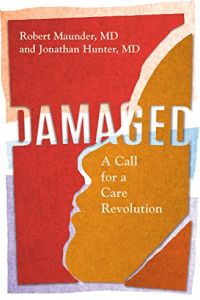Millions of adults suffer lasting impacts from childhood trauma, but the healthcare system will fail them without a revolution, urge Dr. Robert Maunder and Dr. Jonathan Hunter. They showcase Maunder’s (aka “Bob”) 20-years of experience treating “Isaac” — a patient who experienced extreme childhood adversity. Maunder and Hunter argue that Isaac’s all-too-common experiences of childhood abuse and his struggles to access care exemplify a healthcare system that must learn to address trauma-informed relationships.
Childhood trauma disrupts the lives of millions of adults. It’s time for a revolution.
More than 60 million adults in the United States and roughly nine million in Canada experience such severe childhood trauma that it negatively affects them throughout adulthood. People tend to over-simplify narratives of childhood abuse, resorting to binary stories featuring victims and villains, bad parents and good parents and so on, yet the reality of abuse often features detailed nuance. Childhood trauma is one of society’s most pressing public health crises, and people must collaborate to find care solutions for the millions of children who suffer adversity and abuse.
Dr. Vincent Felitti led the development of the Adverse Childhood Experiences (ACE) study to formalize a system of scoring the adversity children faced. As adults, people with higher ACE scores had more negative outcomes, which include an increased likelihood of giving birth as a teenager, suffering sexually transmitted infections, drinking excessively and smoking, and using compulsive eating as an emotional coping tool. People with higher ACE scores face...
Robert Maunder, MD teaches at the University of Toronto and serves as the head of research in Mount Sinai Hospital’s Department of Psychiatry. Jonathan Hunter, MD is head of the University’s Department of Psychiatry Consultation and Liaison Division.








Comment on this summary